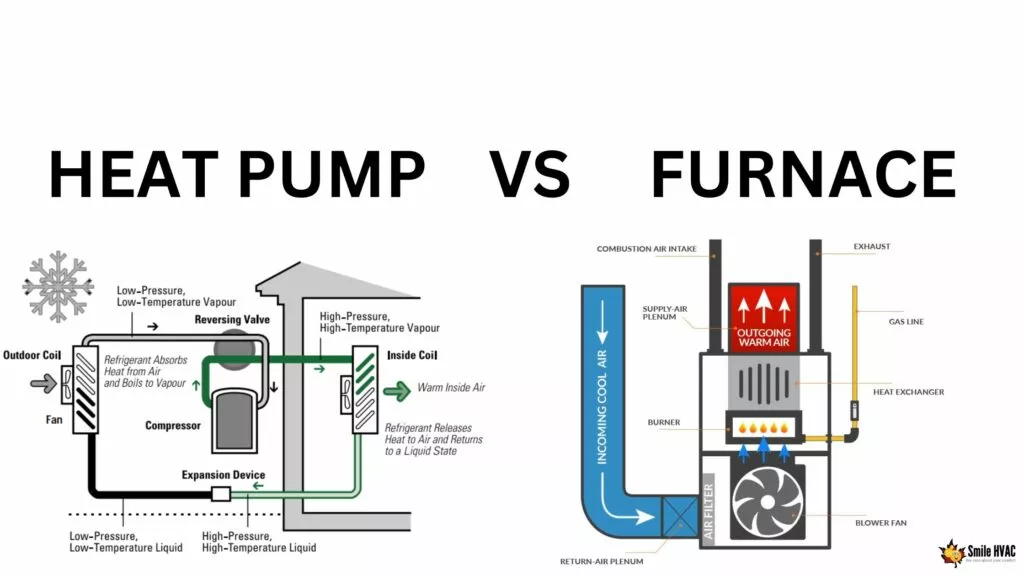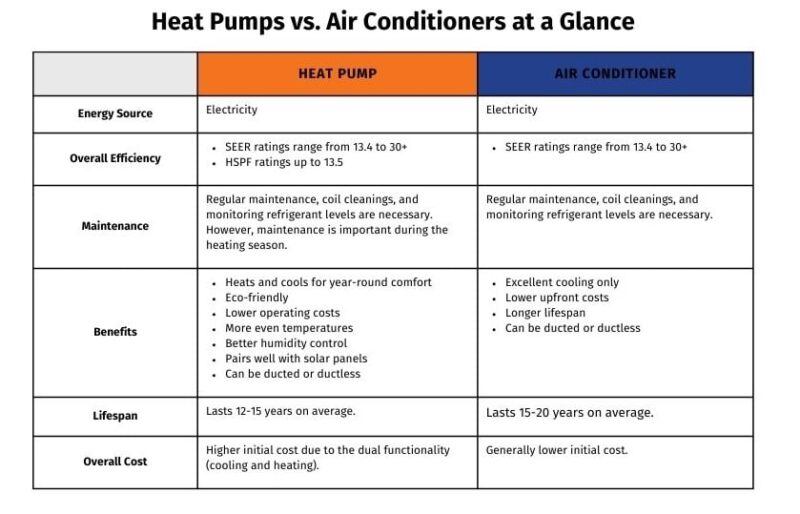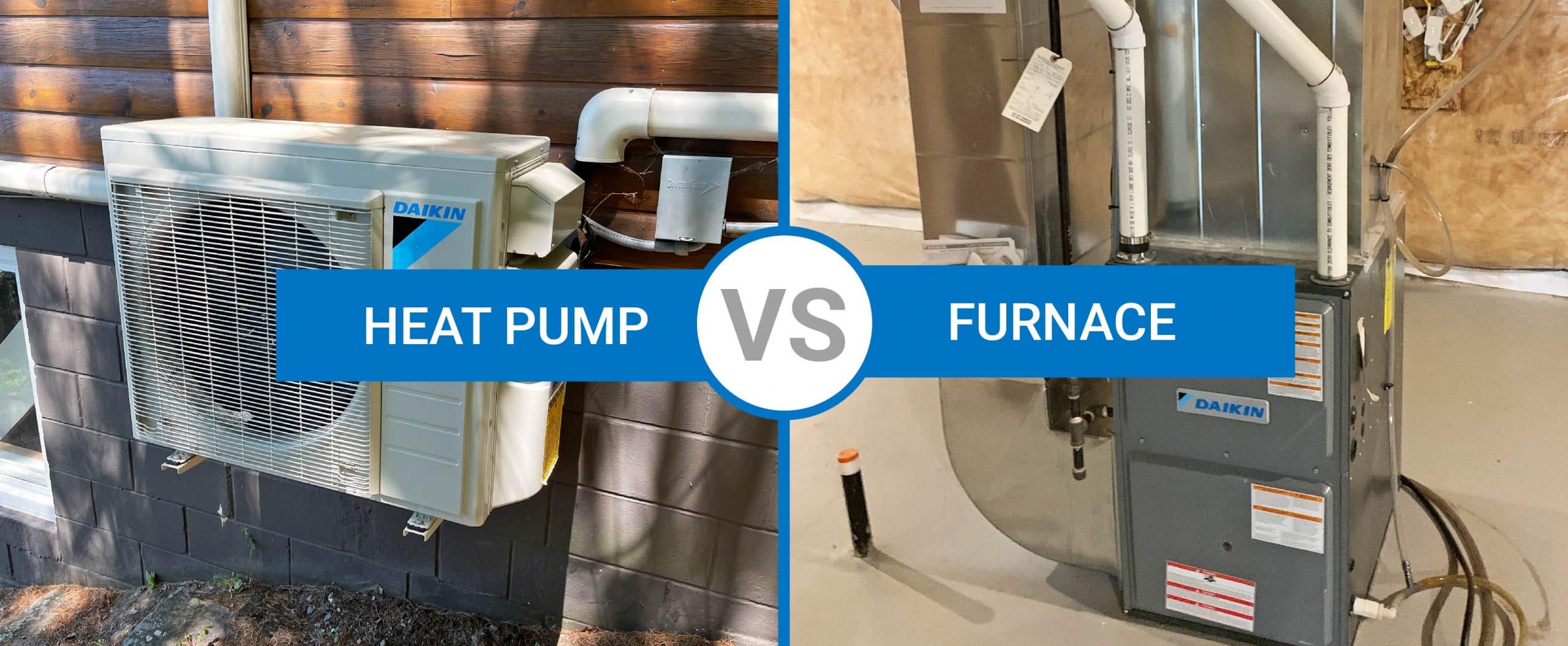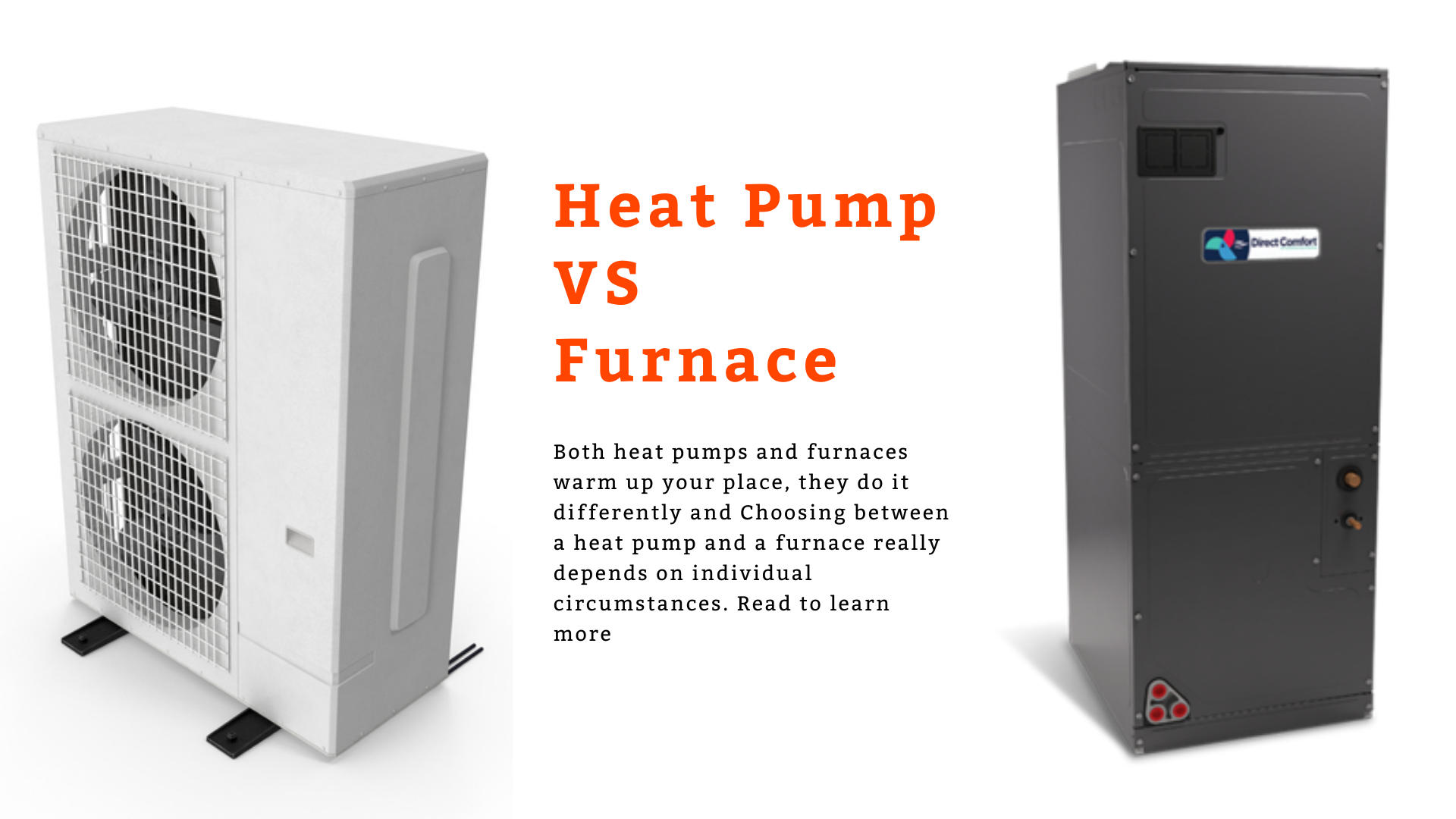Heat Pump Vs Furnace And Air Conditioner

Heat Pump vs. Furnace and Air Conditioner: A Comprehensive HVAC Comparison for Career Success
Choosing the right HVAC system for a home or business is a critical decision, impacting energy efficiency, comfort, and long-term costs. For HVAC professionals, understanding the nuances between a heat pump system and a traditional furnace and air conditioner setup is crucial for providing informed recommendations and excelling in their careers. This article provides a detailed comparison, exploring career paths, certification opportunities, and industry trends for those working with these technologies.
Understanding the Systems: A Side-by-Side Look
Furnace and Air Conditioner: This is the traditional forced-air HVAC system. A furnace, typically fueled by natural gas, propane, or electricity, heats the air. A separate air conditioning unit cools the air using a refrigerant cycle. The heated or cooled air is then distributed through ductwork.
Heat Pump: A heat pump is a single unit that can both heat and cool a building. It operates by transferring heat rather than generating it. In heating mode, it extracts heat from the outside air (even in cold temperatures) and moves it indoors. In cooling mode, it reverses the process, removing heat from the inside and releasing it outdoors. Heat pumps utilize a refrigerant cycle similar to an air conditioner but with a reversing valve.
Performance and Efficiency: What the Numbers Say
Heating Efficiency: Furnaces are rated by Annual Fuel Utilization Efficiency (AFUE). High-efficiency furnaces can achieve AFUE ratings of 90% or higher, meaning they convert 90% or more of the fuel into usable heat. Electric furnaces have an AFUE close to 100%. Heat pumps are rated by Heating Seasonal Performance Factor (HSPF). Modern heat pumps can achieve HSPF ratings of 8 or higher. However, a heat pump's efficiency decreases as the outdoor temperature drops. At very low temperatures, they may require supplemental electric resistance heating.
Cooling Efficiency: Both air conditioners and heat pumps are rated by Seasonal Energy Efficiency Ratio (SEER). Higher SEER ratings indicate greater efficiency. Current minimum SEER standards vary by region, but high-efficiency units can achieve SEER ratings of 20 or higher. A heat pump's SEER rating is typically the same as or slightly lower than a comparable air conditioner model.
Energy Savings: In moderate climates, heat pumps can be more energy-efficient than a furnace and air conditioner combination, especially for heating. In regions with extremely cold winters, the furnace may be a more cost-effective heating solution. According to the U.S. Energy Information Administration (EIA), heating accounts for approximately 42% of a typical household's energy consumption, making efficiency a crucial factor.
Cost Considerations: Installation and Operation
Initial Installation Costs: Heat pumps often have a higher initial installation cost than a furnace and air conditioner. This is due to the more complex technology and the need for specialized installation procedures. However, potential energy savings over time can offset the higher upfront cost.
Operating Costs: Operating costs depend on fuel prices and energy efficiency. In areas with low electricity rates, heat pumps can be very cost-effective. In areas with high gas prices, furnaces can be a more economical choice. It's essential to consider local energy prices when comparing the long-term costs of each system.
Career Paths in HVAC: Opportunities Abound
The HVAC industry is experiencing steady growth, driven by factors such as population increases, stricter energy efficiency standards, and the demand for indoor air quality solutions. The Bureau of Labor Statistics (BLS) projects a positive job outlook for HVAC technicians. The median annual wage for HVAC mechanics and installers was $51,390 in May 2022. The top 10 percent earned more than $81,630.
Entry-Level Technician: New HVAC technicians typically start with on-the-job training or through vocational programs. They assist experienced technicians with installations, repairs, and maintenance.
HVAC Installer: Installers specialize in installing new HVAC systems, including ductwork, refrigerant lines, and electrical connections. They need to be proficient in reading blueprints and following installation codes.
HVAC Service Technician: Service technicians diagnose and repair HVAC systems. They need strong troubleshooting skills and a thorough understanding of HVAC components and systems. Many specialize in either heating or cooling.
HVAC Sales and Design: Sales and design professionals work with customers to determine their HVAC needs and design systems that meet those requirements. They need strong communication skills and a technical understanding of HVAC systems.
HVAC Project Manager: Project managers oversee HVAC projects from start to finish, ensuring they are completed on time and within budget. They need strong organizational and management skills.
Essential Certifications: Boosting Your Credentials
Earning certifications is a valuable way to demonstrate your knowledge and skills to employers and customers. Here are some key certifications for HVAC professionals:
EPA Section 608 Certification: This certification is required by the Environmental Protection Agency (EPA) for technicians who handle refrigerants. There are different types of EPA 608 certifications, depending on the type of equipment being serviced. This is a mandatory certification for most HVAC work.
NATE Certification: North American Technician Excellence (NATE) is a leading certification organization for HVAC technicians. NATE certification demonstrates a technician's knowledge and expertise in specific areas of HVAC. NATE offers certifications in areas such as air conditioning, heating, and refrigeration.
HVAC Excellence Certification: HVAC Excellence offers a range of certifications for HVAC technicians and educators. Their certifications cover various areas, including air conditioning, heating, and heat pumps.
State and Local Licenses: Many states and local jurisdictions require HVAC contractors and technicians to be licensed. Licensing requirements vary by location, so it's essential to check with your local authorities.
Real-World Examples: Career Trajectories
Example 1: Maria, HVAC Service Technician: Maria started as an apprentice after graduating from a vocational school. She earned her EPA 608 certification and then pursued NATE certification in air conditioning and heating. She now works as a lead service technician for a large HVAC company, specializing in repairing commercial HVAC systems. Her salary range is $65,000 - $75,000 annually.
Example 2: David, HVAC Project Manager: David began his career as an HVAC installer. He gradually worked his way up to project manager by gaining experience and earning certifications in project management. He now manages large-scale HVAC projects for new construction and renovation projects. His salary range is $80,000 - $100,000 annually.
Staying Ahead of the Curve: Industry Trends
Smart HVAC Systems: The demand for smart HVAC systems is growing rapidly. These systems use sensors, controls, and data analytics to optimize energy efficiency and improve comfort. HVAC technicians need to be proficient in installing, configuring, and troubleshooting smart HVAC systems.
Variable Refrigerant Flow (VRF) Systems: VRF systems are becoming increasingly popular for commercial buildings. These systems offer precise temperature control and energy efficiency. VRF technology requires specialized training and expertise.
Geothermal Heat Pumps: Geothermal heat pumps are a renewable energy technology that uses the Earth's constant temperature to heat and cool buildings. Geothermal systems are becoming more common as consumers seek sustainable energy solutions.
Refrigerant Regulations: The HVAC industry is facing increasing regulations on refrigerants due to environmental concerns. Technicians need to stay up-to-date on refrigerant regulations and be trained in handling alternative refrigerants with lower global warming potential.
Making the Right Choice: Factors to Consider
When choosing between a heat pump and a furnace and air conditioner, consider the following factors:
- Climate: Heat pumps are generally more suitable for moderate climates.
- Energy Costs: Compare the cost of electricity and fuel in your area.
- Installation Costs: Obtain quotes from multiple contractors.
- Energy Efficiency: Look for high SEER and HSPF ratings.
- Long-Term Costs: Consider both installation and operating costs.
Conclusion: A solid understanding of HVAC systems will undoubtedly contribute to your success, whether you are an HVAC student, a seasoned professional, or a business owner in this field. By continuing to learn about new HVAC technology, earning relevant certifications, and honing their skills, HVAC professionals can achieve long and rewarding careers.










